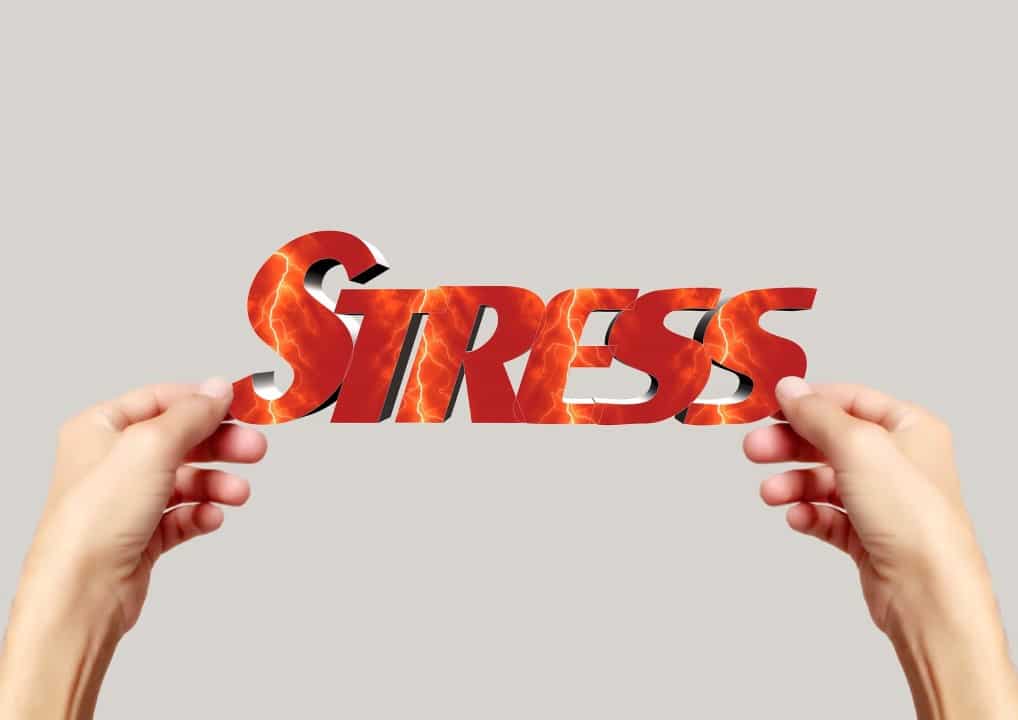The idea that our teenagers are super-stressed is one that’s been getting a lot of attention, globally. I’ve written about it myself, and there are, for sure, some significant issues here. But psychologist Lisa Damour, writing in the New York Times, suggests that perhaps we’ve been approaching this in the wrong way. The problem, she suggests, is not stress itself, but how we think about it:
Stress doesn’t deserve its bad rap. Psychologists agree that while chronic or traumatic stress can be toxic, garden‐variety stress — such as the kind that comes with taking a big test — is typically a normal and healthy part of life. In a 2013 article in the Journal of Personality and Social Psychology on stress mind‐sets, the researchers Alia J. Crum, Peter Salovey and Shawn Anchor noted that the human stress response, in and of itself, can put “the brain and body in an optimal position to perform.”
We can certainly agree with Damour that there are genuine traumas (I guess associated with assault, bullying, bereavement, illness and injury). But what to make of her claim that ‘garden-variety’ academic stress is different and not such a big deal? She goes on to suggest that actually, perhaps the stress that comes from regular struggle is needed and normal:
Stanford’s Glichman and Harvard’s Lipson, through their research have determined that more and more students today are “failure deprived”. Many students do not seem to have the “get back onto the horse and ride again when they have fallen” mentality which should have been cultivated in childhood. As a consequence they started a project to normalize struggle – to teach students that struggle is a normal part of life – that it happens to everyone – that it teaches lessons and opens new possibilities.
There’s likely no single and simple characterisation that applies to all students; but there is much talk about ‘stepping out of your comfort zone’, and that’s generally regarded as a good thing. Well, stepping out of the comfort zone is by definition uncomfortable; and it’s easy to interpret that as stressful. This week I have spent a good deal of time with some parents who very much did not want their child to be out of the comfort zone, and who were doing everything they possibly could to have their child sheltered in the safe and comfortable zone of little or no responsibility.

Of course that cannot be right – High School students need to be ready for the years beyond school; and to some (measured, reasonable) extent, that must mean dealing with (measured, reasonable) levels of stress. So to this extent I agree with Damour – that our immediate reaction to stress cannot simply be ‘take it away’; rather it has to be a measured and thoughtful assessment of the stress. Why is it felt? For how long? By which students? And is this the good form of stress, like the stress on muscles and lungs when we train for a race? Or is the bad form which is genuinely harmful? These are not easy questions to answer. But we run the risk of doing our students a profound disservice if we do not at least ask them.
Let me launch into some speculation here – I really am not sure if this is right and I would welcome feedback in the comments: I wonder if modern progressive education has gone too far down the road of making learning fun and enjoyable? To me that seems almost a silly question – after all, if learning is fun then students will spend longer, concentrate harder and work longer. But having heard it’s just not fun as a reason for students to be disengaged makes me wonder if we are in danger of confusing eduction with entertainment. That might mean just making it less enjoyable, not as a by product, but as an end in itself. It might seem crazy (and extremely unpopular for sure) but bear with me.
The idea is something like the idea of inoculation – that we can make people stronger by exposing them to measured amounts of what would in large measure be toxic, by building up resistance. It’s well-established as far as the immune system goes, of course, and is the basis for a lot of what schools do in sport and elsewhere. Philosopher and mechanic Matthew Crawford has written about it in a particularly intersting and apparently paradoxical effect – that there are more accidents on safer roads than on dangerous ones. I have transposed his ideas to schools.
I am not entirely sure the analogy holds, but it suggests that reducing stress may not the entire answer. It seems to work in the analogy – Emily Anthez notes that among traffic engineers a few iconoclasts have begun making roads more dangerous – narrowing them, reducing visibility, removing curbs and centerlines, even traffic signs and signals. Research shows these roads are home to significantly fewer crashes and traffic fatalities.
There is much more thinking to do here. I have many questions, but this at last partially resonates with what all good parents know about helping their children in tough times, and the need to resist stepping in to remove all troubles. Brené Brown has put it beautifully: Together we will cry and face fear and grief. I will want to take away your pain. But instead I will sit with you and teach you how to feel it.
References
- Anchor, S. Crum, A and Salovey (2013) Rethinking Stress: The Role of Mindsets in Determining the Stress Response Journal of Personality and Social Psychology, 2013, Vol. 104, No. 4, 716 –733
- Anthes, E (2010) Outside In: Street Smart: Why “white-knuckle” roads are a driver’s safest bet. Psychology Today
- Bernstein, P. (1996) Against the Gods: The Remarkable Story of Risk. New York, John Wiley and Sons
- Brown, B. (2012) The Wholehearted Parenting Manifesto Huffington Post
- Crawford, M (2016) The World Beyond Your Head: On Becoming an Individual in an Age of Distraction: Farrar, Straus and Giroux
- Damour, L (2018) How to Help Teenagers Embrace Stress. New York Times, 19.9.2018



5 Responses
There's some really useful writing from Dan Willingham (Why Don't Students Like School) and Brown et al (Make it Stick) on why learning should feel effortful, and how your brain actually does't like thinking and tries to avoid it! Bjork is useful here too on desirable difficulties; it seems there's a lot too the idea that learning might often feel really uncomfortable, certainly when we're starting out. I also was really excited to learn the term eustress – I think very often we associate stress too closely with distress, and therefore a state we need to move quickly out of or avoid as much as possible. Eustress – as adrenaline, for example – I found really useful to thinking about how to harness stress as something much more useful.
Yes, I agree and this resonates with so much about grit, resilience etc. We would not need these things if it were all easy and comfortable. That said, we can re-interpret stress as excitement (https://www.youtube.com/watch?v=56mKJhBVPOU). The narratives we tell ourselves are critical.
I think the emphasis should be put on your idea that stresses can be good when ‘planned’. If the stress is a resullt of say an exam which we show is coming and which we have educated for and explained its lack of long term importance then this is the same as the athlete analogy – we may get adrenalin or even feel fearful, but most students can deal with them.
We have to be careful of confusing wanting school to fun and enjoyable so its less stressfull, with wanting it to be fun and enjoyable because that’s what we want our children to experience more of or how we think they learn best. There is plenty of stress around, we just need to try to make sure it’s good, planned, useful stress (exams, first night of production, competitive sport ,dragon’s den for entrpreneurial project etc etc), not the relentless stress of never having time to do anything properly, peer comparison, etc. I would not want any school to put less emphasis on fun right now unless it is harming learning and wellbeing. We all know of awful things that make us stronger, but we don't wish them on anyone.
Having aid that, Nasim Taleb’s 'Anti-fragile' is good on this. He distinguishes very clearly between systems where constant stresses break things down, resilient systems that just ‘bounce back’ (the original meaning of the word) from stress and anti-fragile systems that expect (are conscious of unpredictability) stresses and thus are equipped to bounce forward. Isn’t that what we want for our students? Not to build in stress to learn to deal with it but to build our education so we plan stresses that make us stronger (like the training athlete) and build consciousness of unpredictability and plan for this too (like the road designer). Could still be fun.
It should be emphasised that the radical road engineers were not trying to make roads more dangerous, they were trying to make them safer. The experiments, at least in Holland, were based on complexity theory – that drivers and pedestrians will find their own solutions as they have to consciously navigate through varying conditions instead of being constantly directed. They were successful because there were basic rules which everyone knew to follow, but the decisions were being constantly worked out collectively and consciously (who crosses when, drives where). The lesson seems to me to be that we don’t make school more stressful (dangerous), to learn how to deal with stress, but make school more conscious, so we learn to learn how to navigate learning together with some agency under a shared understanding. Importantly though what works in Holland would not work elsewhere with different shared vision of traffic rules. I’ve driven in Kuwait. It’s different – it would result in more dangerous roads ! We should not as schools therefore assume (I know you don’t) that other schools’ experiments with increasing or decreasing fun would have the same effect here.
That makes a lot of sense to me, Nathan. As you say, the distinction between planned good stress (eu-stress) and the unplanned, awful stress (dis-stress) is critical I guess what I was clumsily reaching toward was that in seeking to reduce overall stress, we may inadvertently reduce the former so much that when the latter arises (regrettably) students are less able to deal with it.
And I take your point – that the radical road engineers were not trying to make roads more dangerous, they were trying to make them safer. But that to do so they did some counter intuitive things; and I wonder if there is an analogy with us. I am not sure. But plenty to keep pondering.
Thanks for taking the time to reply 🙂
nice your post
click now
click Now
click Now